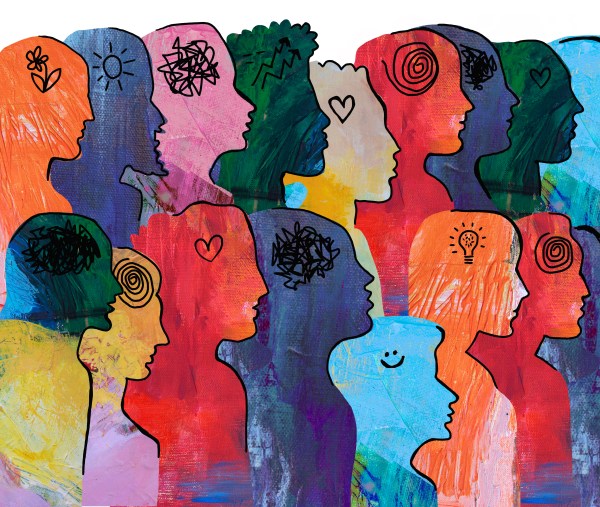Turn any article into a podcast. Upgrade now to start listening.
Premium Members can share articles with friends & family to bypass the paywall.
Here at The Dispatch, we’re dedicated to cultivating the next generation of thinkers and leaders—that’s why we’re proud to provide low-cost, high-quality Dispatch memberships to students looking to stay informed, think critically, and better engage with the world around them
With your help, we can offer these students free Dispatch memberships and ensure they’re engaging with content that promotes the core values that make our country great—individual liberty, pluralism, patriotism, and capitalism.
Your support can help provide a new wave of young conservatives with better journalism, more thoughtful dialogue, and—hopefully—a brighter outlook on our future.
Hey,
I’m often accused of being anti-populist because I’m anti-Trump. The truth is far, far closer to the other way around. For instance, here’s how I began a column almost two decades ago:
Politics has a math of its own. Whereas a scientifically minded person might see things this way: One person who says 2+2=5 is an idiot; two people who think 2+2=5 are two idiots; and a million people who think 2+2=5 are a whole lot of idiots–political math works differently. Let’s work backwards: if a million people think 2+2=5, then they are not a million idiots, but a “constituency.” If they are growing in number, they are also a “movement.” And, if you were not only the first person to proclaim 2+2=5, but you were the first to persuade others, then you, my friend, are not an idiot, but a visionary.
We are beset by many such visionaries these days.
Populism doesn’t need social media to spread idiocy. Ignatius Donnelly—“the Prince of Cranks”—got plenty of traction in the 19th century. Most of the nonsense you see on the History Channel about Atlantis can be traced back to him. Much of the antisemitic hooey spewed by many of the idiot-visionaries can also be traced back to him and his imitators. Indeed, he was hardly alone. The populist era was full of haters of all the usual suspects: Jews, blacks, Brits, Catholics, Masons, bankers, etc.
There was also no shortage of mystics and mediums peddling things like “theosophy” and other crackpot mystical theories. Madame Helena Blavatsky, the creator of theosophy, had many prominent adherents, acolytes, dabblers, and fans, including Abner Doubleday, L. Frank Baum, William Butler Yeats, Henry Wallace (the vice president), Wassily Kandinsky, Thomas Edison, and Mahatma Gandhi. They didn’t all believe her mystical mumbo jumbo or subscribe to every jot and tittle of her race theories and antisemitism, but the craziness you hear about demons and aliens today is hardly new.
Blavatsky launched a journal called—I defecate you negatory—Lucifer. The name was a sophisticated way to troll Christians. Lucifer, Blavatsky explained, was the “pale morning star” and “light bringer” that would illuminate all the hidden truths.
Lucifer was co-founded by Mabel Collins. When Collins broke with Blavatsky and the theosophists, she recounted how Blavatsky:
taught me one great lesson. I learned from her how foolish, how 'gullible', how easily flattered human beings are, taken en masse. Her contempt for her kind was on the same gigantic scale as everything else about her…. She had a greater power over the weak and credulous, a greater capacity for making black appear white, a larger waist, a more voracious appetite, a more confirmed passion for tobacco, a more ceaseless and insatiable hatred for those whom she thought to be her enemies, a greater disrespect for les convenances, a worse temper, a greater command of bad language, and a greater contempt for the intelligence of her fellow-beings than I had ever supposed possible to be contained in one person. These, I suppose, must be reckoned as her vices, though whether a creature so indifferent to all ordinary standards of right and wrong can be held to have virtues or vices, I know not.
(Or as Tommy Lee Jones says in Men in Black: “A person is smart. People are dumb, panicky dangerous animals and you know it.”)
When I read this description of Madame Blavatsky, I can’t help but think of Tucker Carlson and his imitators and competitors.
I don’t pay much attention to Carlson these days. I ignore him mostly out of sadness. I’ve known him for decades and considered him a friend for much of that time. The reason I finally quit Fox News with more than a year remaining on my contract was his insidious “investigation” titled “Patriot Purge,” which cleverly insinuated all manner of fevered and deranged conspiracy theories about January 6, 2021. I say “insinuated” because he wanted to stay on the “just asking questions” side of legal jeopardy with his lies and anti-American smears.
What aroused my attention and ire was his attack on Cliff Asness, a close friend of mine. Carlson off-handedly called him one of the “sleazier people in American business.” If you want to discount my defense of Cliff as one of the most honorable and above-board people I’ve ever known because I hold the Asness Chair in Applied Liberty at the American Enterprise Institute, or because he’s a minority investor of The Dispatch (who has offered his share of criticisms of some of our stuff, to zero editorial effect) or some other reason (those Joooz stick together, you know), be my guest. Personally, I think it would be more dishonorable to stay quiet about B.S. accusations against a friend for fear of B.S. accusations hurled back at me.
One of the things I love about Cliff—aside from our shared nerd-love of comic books—is that unlike a shocking number of people with f–k you money, he’s actually willing to say f–k you to people who have it coming. I know a lot of honorable, honest, patriotic people. I don’t know any who are more honorable, honest, or patriotic than Cliff.
What makes me sad about Carlson shouldn’t surprise anyone who’s followed the degeneration of a once clear-eyed, patriotic, funny, and joyous journalist—and friend—into an angry crank who carries water for Russia, Iran, and, of course, Qatar. Tucker has more than enough f–k you money himself. He doesn’t need to do any of this for money, he wants to do it. He enjoys it. I think in part because he has let his bitterness toward “the establishment” corrupt his soul to the point where he thinks he can get payback by engaging in what Julien Benda called “the intellectual organization of political hatred.”
That’s the relevant difference between Carlson and Cliff. Cliff loves America and detests antisemitism and is willing to tell people who don’t, f–k you, which is why he withdrew support for his alma mater when it played footsie with Hamasniks and Jew-haters. Carlson craves the attention he gets by saying f–k you to America and Jews.
What separates Carlson from many of his imitators is that he’s very smart and informed. He knows when he’s lying. He knows what he’s doing.
I have no such confidence about, say, Candace Owens. She may have a certain kind of shrewdness or glib cleverness, but her ignorance pulls her into idiocy. Because she has a thumbless grasp of facts, she starts with conclusions: “Jews are bad,” and then googles until she finds the proof she needs. She calls this “doing her own research.”
For instance, when told that Jerusalem has a “Muslim quarter” she simply assumed that meant it was a segregated ghetto akin to the Jim Crow South. That’s how ignorance paves the way for idiocy. If she’s ever read a single mainstream history book cover to cover, I’d be legitimately shocked.
Carlson’s errors and lies are more sophisticated. He’s better at “just asking questions” of people he knows will give wrong answers. Part of his shtick is to elevate and promote cranks as authorities so that their bile is taken as authoritative. He touted Twitter personality and podcaster Darryl Cooper as “best and most honest popular historian in the United States” so that Cooper’s claims that Winston Churchill was “the chief villain of the Second World War,” would sound authoritative as Carlson nodded along.
Cooper claimed that the only reason for the Holocaust—which wasn’t really, you know, the Holocaust —was that the Nazis failed to plan adequately for all of their prisoners of war. “They launched a war where they were completely unprepared to deal with the millions and millions of prisoners of war, of local political prisoners and so forth that they were going to have to handle,” Cooper said. “They went in with no plan for that, and they just threw these people into camps, and millions of people ended up dead.”
Millions of people ended up dead.
He sounds a bit like Judd Nelson in The Breakfast Club: “Screws fall out all the time. The world is an imperfect place.” Millions of Jews “ended up dead” because gas chambers, firing squads, deliberate starvation, and slave labor happen all the time.
Carlson once told me that Orwell’s “Politics and the English Language” was one of his favorite essays. It’s one of mine too, one of the very few I make myself re-read every couple of years. I guess we read different essays. Because this passive-voiced, deceitful, yada-yadaing of wholesale murder is one of the most grotesque things said in recent years. And it is precisely the kind of thing Orwell was denouncing when he wrote, “In our time, political speech and writing are largely the defence of the indefensible.”
The Carlson I knew would issue that quasi-manic, hyena-like guffaw for which he is famous at the suggestion that the Holocaust was simply an accident of those famously poor planners, the Germans. The Carlson of today theatrically nods along..
I’m not going to run through all of the examples of this schtick. The fake awe at Russian grocery stores; the earnest brow-furrowed fascination with artificial intelligence’s demonic roots in the Kabbalah; the claims of interdimensional demons, one of whom scratched his arms in the middle of the night while he was sleeping with his four dogs. The Carlson I knew might apply Occam’s razor to the mystery of the scratches and blame one of his dogs. But no, the new Carlson thinks the more likely answer is that a demon traversed the border between its Stygian home dimension just to scratch him and depart.
Mephistopheles: “How’d your interdimensional trek work out?”
Beelzebub: “Great. I left a minor scratch on his arm. That’ll teach him not to criticize Israel!”
But let’s get back to the logic of populism.
The petri dish of poisonous populism.
I said earlier that populism doesn’t need social media to spread idiocy. It doesn’t. But boy howdy does it make it easier and more lucrative.
One of the fundamental problems with our present moment is the confusion of sincerity and seriousness. On the left we can see this in the cult of personality in Zohran Mamdani. His ideas are nonsense, but people sincerely adore him and want his ideas to be true. His supporters may be serious about their sincerity, but their sincerity doesn’t make his ideas any more serious. I sincerely want eating pizza to make me thinner. The universe doesn’t give a rat’s ass.
A more sinister example can be found in the platoons of moral poltroons who, just yesterday, commemorated the two-year anniversary of the October 7 murderous rape gangs by honoring the Hamas “martyrs” who died in acts of “resistance.” Many of these people started bleating about Israeli “genocide” in Gaza when Hamas was still murdering Israelis. And they haven’t stopped since. Now, many of them oppose a plan to stop what they dub genocide because it might come at the cost of Hamas ceasing its “resistance.” Whether you agree with me that their position is evil is irrelevant. It is utterly unserious. It’s very sincere. But it is geopolitically ridiculous.
And yet, because there are large numbers who believe it, they are treated as a 2 plus 2 equals 5 constituency to be mollified or appeased—because many politicians, journalists, “experts,” and voters confuse sincerity with seriousness. If you sincerely believe that a cabal of Jews controls the world, or maybe just the weather, you’re free to do so. But a country run by serious people—including its actual citizens—should have the moral, political, and civilizational confidence to utterly ignore you, if not condemn you or try to talk you out of your stupidity. But just as Willie Sutton apocryphally explained why he robbed banks—“that’s where the money is”—too many politicians and “influencers” can’t resist taking these people seriously because that’s where the passion is. And passion—“engagement,” clicks, sales, ratings, votes—is the currency of this craptacularly populist moment.
On the right side of this populist moment, we see an insatiable hunger for constituencies of idiocy.
Megyn Kelly, another person drowning in f–k you money, is moving on Carlson’s and Owens’ audience like some foreign conglomerate eager for new markets. She refuses to condemn Owens and her ilk’s antisemitism because they have large audiences that sincerely believe a lot of nonsense and lies. Kelly says that no one cares about—largely undenied—allegations that Tom Homan took a bag of cash for political favors because “he’s a national treasure.” Whether he’s a national treasure is, at minimum, debatable. What shouldn’t be debatable is that allegations of corruption should be investigated regardless of how popular someone is with a slice of the podcast market.
Every day, I am told that criticizing Trump honestly and accurately is “insulting” to his fans because they sincerely love him and don’t believe any inconvenient facts about him. Or they believe the facts, but they just don’t care, because they hate Trump’s enemies more. Any weaponization of government and law enforcement he indulges is fine, because “Democrats did it first.” His avaricious hunger for power is routinely rationalized with spurious nonsense: This is what we voted for! He was treated unfairly! He can’t help himself! He thinks he’s right!
For argument’s sake, let’s say all of that is true. So what? Democracy has always been vulnerable to populist passion. H.L. Mencken famously said, “If a politician found he had cannibals among his constituents, he would promise them missionaries for dinner.” His was a criticism of this tendency in democracy. It was a tendency the Founders worried about, which is why they set up a system to keep the temptation at bay. Now we’re being told this isn’t a bug we should be vigilant against, but a feature we should celebrate.
Dismissing facts because they hurt your feelings and justifying the corruption of our system of justice because “they did it first,” or “everybody does it” is reified, politicized childishness. Defending toddlerism in the executive is institutionalized childishness. One of the defining features of childhood is the inability to productively regulate your feelings and passions. That’s why we call adults with the same problem “childish.” And that’s what most populism is, the elevation and indulgence of immature passion, the glorification of childishness. Children aren’t always wrong to be angry or upset, but what marks them as children is their inability to sufficiently control their emotions. When your child sincerely tells you 2 plus 2 equals 5, the serious parent tells them they are wrong.
When millions of childish people tell you 2 plus 2 equals 5—because the Jews want you to believe it’s 4—the serious person says “you’re wrong,” even if it comes at the expense of tantrums on college campuses or YouTube views of the Tucker Carlson network.
A note from, well, me.
I probably should have picked a different topic to append this appeal to. But maybe not. Today marks the six-year anniversary of the launch of The Dispatch. If you’re a regular recipient of the Wednesday G-File, you’re already a subscriber and I want to thank you. If not, I also want to ask you to help us out by subscribing or getting someone else to. As the above demonstrates in some small way, we don’t believe in just telling our audiences what they want to hear. That means we’re going to annoy—or really piss off—some of our readers (and listeners) from time to time. In fact, we believe that if we’re not doing that on a regular basis, we’re doing it wrong.
We’re not against passion per se. But we are passionate about not pandering to anybody, particularly partisans of the right or left. I can’t promise we’ll always come out where you want us to. In fact, I promise we won’t. But I can also promise that we won’t treat you like children. We’ll treat our audience like grown-ups who can handle hearing arguments and reporting they disagree with.
But if you do agree with us on the narrow proposition that there’s a shortage of seriousness in our politics and culture, all I can do is ask you to help us grow. Spread the word. Maybe buy a gift subscription. Like or give a nice review to our podcasts. Do what you can to help us model the sort of journalistic and political behavior so lacking in our politics today. Please.







Please note that we at The Dispatch hold ourselves, our work, and our commenters to a higher standard than other places on the internet. We welcome comments that foster genuine debate or discussion—including comments critical of us or our work—but responses that include ad hominem attacks on fellow Dispatch members or are intended to stoke fear and anger may be moderated.
With your membership, you only have the ability to comment on The Morning Dispatch articles. Consider upgrading to join the conversation everywhere.